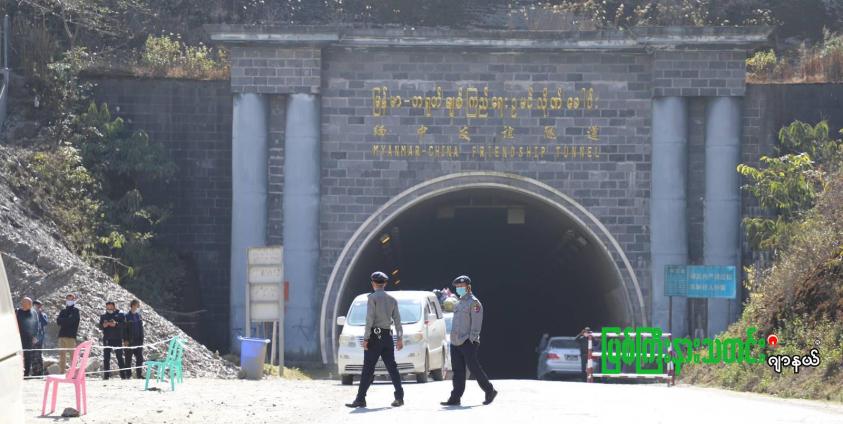The Kachin Independence Army (KIA) has chosen not to seize Kan Paik Ti Town in Kachin State because it has an official border trade post between Myanmar and China.
Colonel Naw Bu, a spokesperson for the KIA and its political wing, the Kachin Independence Organisation (KIO), said that the decision had been taken following careful deliberations.
Kan Paik Ti is located in Waingmaw Township, where the KIA now controls all territories between Waingmaw Town, the township's administrative centre, and Kan Paik Ti. However, the KIA has not set up any blockades on the Waingmaw to Kan Paik Ti Road.
Between late September and early November 2024, the KIA seized nearly all the towns and bases controlled by the Kachin Border Guard Force (BGF) except for the border town of Kan Paik Ti, in Kachin Special Region 1, which roughly corresponds to Chipwi District.
Colonel Naw Bu said that the KIA has already seized Lweje (Loije) Town, another official border trading post between Kachin State and China, which is why Kan Paik Ti was left untouched.
He said: “Official trading posts serve as vital gateways between countries, so we must carefully deliberate before taking control of them. So far, no fighting has occurred in Kan Paik Ti yet.”
The Chinese authorities closed the border crossing at Lweje Town in Kachin Satate on 18 October and closed the border crossing at Kan Paik Ti on 22 October. They allowed the Kan Paik Ti border crossing to be reopened on 6 November, but imposed several restrictions on trade.
But, according to a resident of Waingmaw Township the main reason the Chinese reopened the Kan Paik Ti border crossing was to facilitate the export to China of tissue-cultured bananas grown by Chinese companies in Waingmaw Township. They are allowed to pass, but people and other goods are still forbidden from crossing the border at Kan Paik Ti.
The resident said: “It's not a full reopening. While some activities are occurring, they are mainly limited to the transportation of bananas.”
The Lweje Town crossing remains closed, as do the other border crossing to China in Kachin State in the towns of Pangwar, Laiza and Phimaw, causing hardships for the local population.
Due to the suspension of border trade activities, the prices of imported goods and fuel from China are rising every day.
Lieutenant General Sumlut Gun Maw, the KIO/KIA Vice Chief of Staff, in an interview with the BBC, admitted that China’s closure of the border crossings in Kan Paik Ti and Lweje, had created hardships for the KIO/KIA, but said that they had caused even greater suffering to the local Kachin State population.
He admitted: “The closure of the border gates is a significant pressure for us, it is currently the greatest challenge we face.”
He said that before closing the border crossing into Kachin State the Chinese authorities had informed the KIO/KIA that they were about to do so, but the KIA/KIO has not yet had discussions with China about the border crossing closures.
Lieutenant General Sumlut Gun Maw also explained the KIA’s long-term plans for the border area between Kachin State and China, saying: “The current fighting is aimed at achieving long-term peace for the country. If we can control the border, we can have stability and peace. In the long run, our goal is to bring peace to the entire country and end the military dictatorship.”







